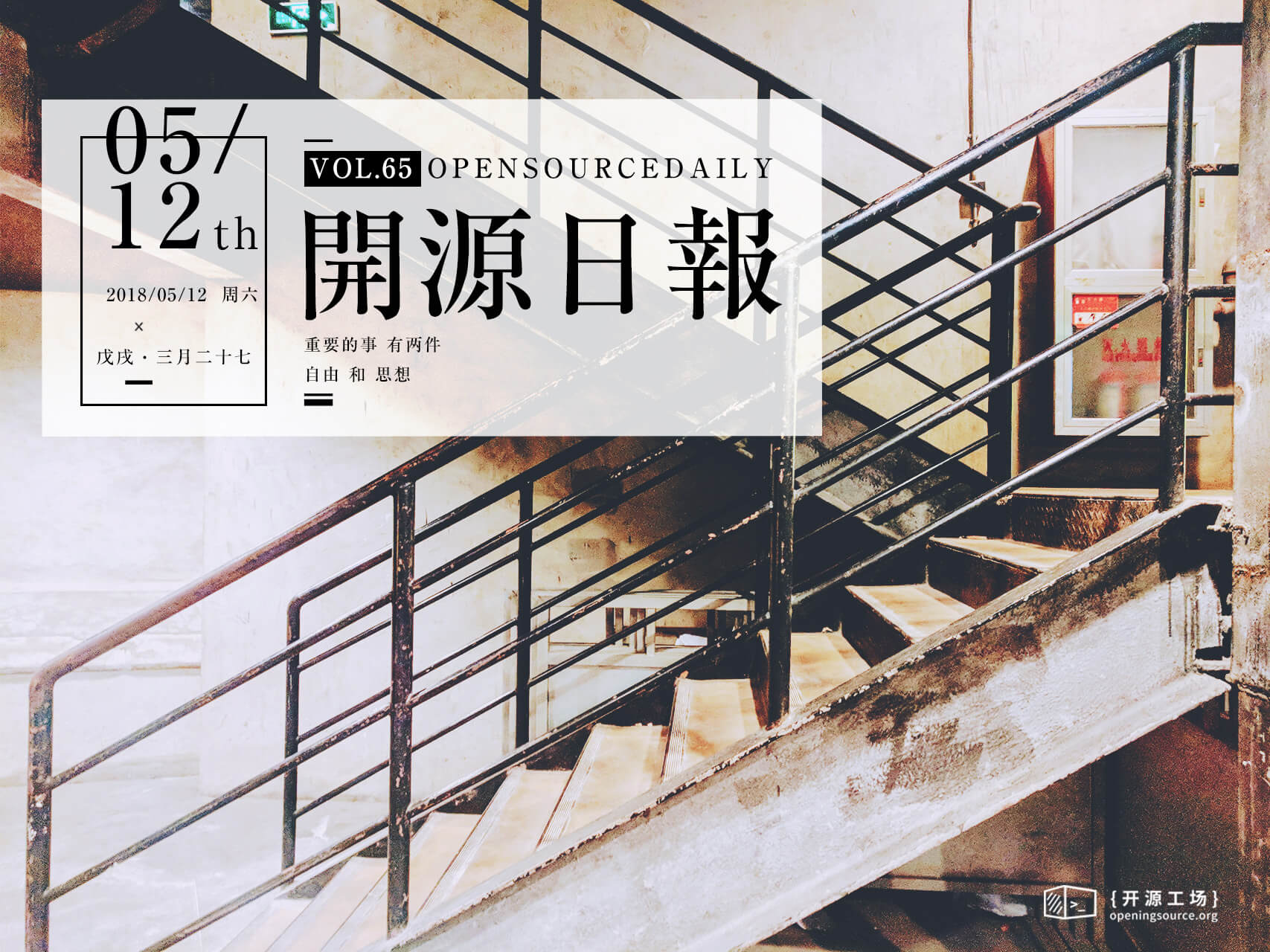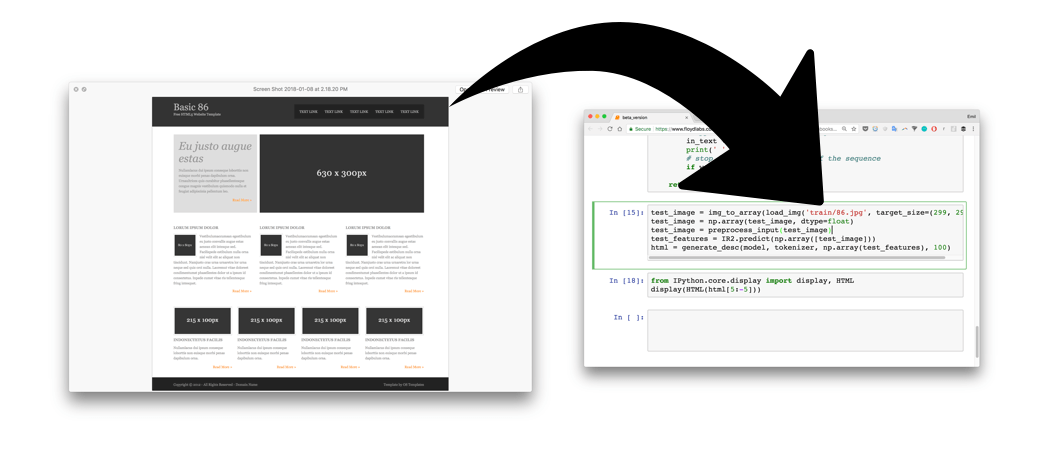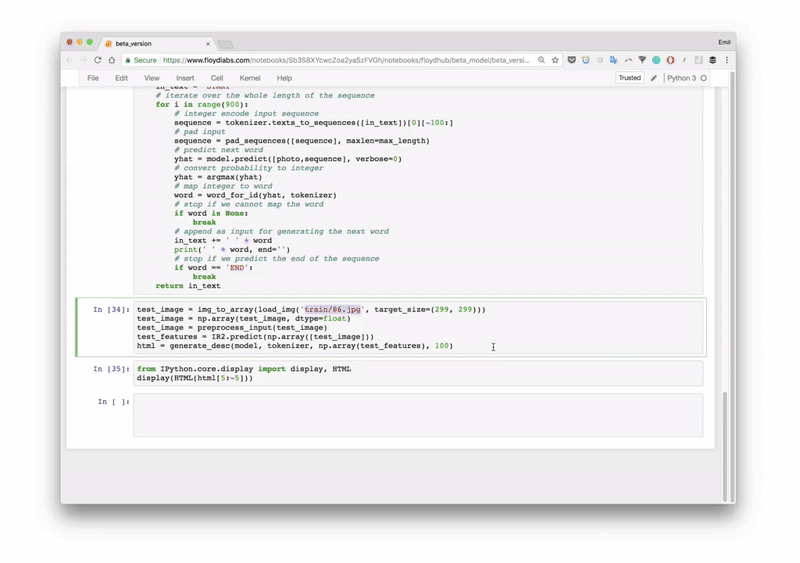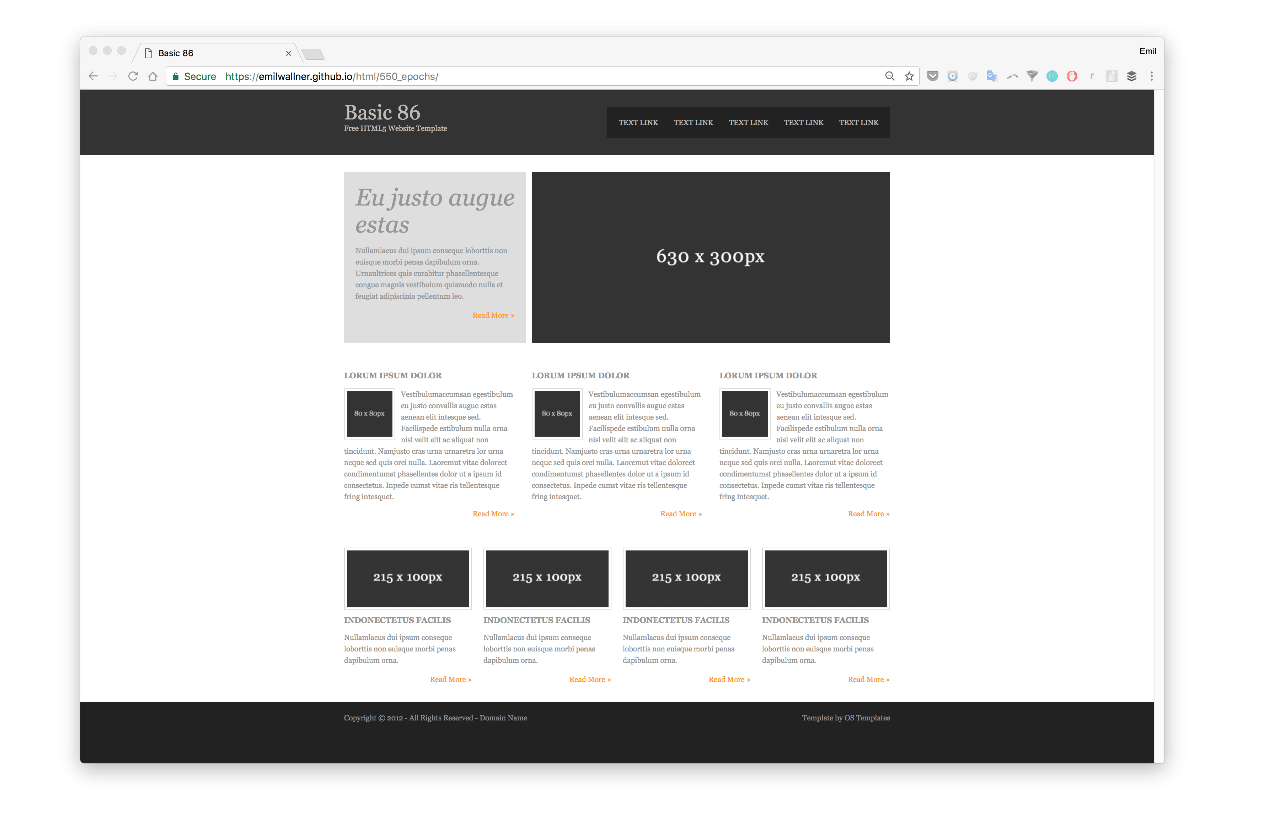每天推薦一個 GitHub 優質開源項目和一篇精選英文科技或編程文章原文,歡迎關注開源日報。交流QQ群:202790710;電報群 https://t.me/OpeningSourceOrg

今日推薦開源項目:《Screenshot-to-code-in-Keras 》GitHub 地址
推薦理由:Screenshot-to-code-in-Keras 是一個 Python 模塊。通過神經網路學習,它可以將一張具體的圖片轉化為 HTML 和基於圖片的 CSS 網站的網頁代碼。與以前的前端自動設計軟體相比,它的優勢在於運用神經網路學習大幅度減少了運算量,使其能在更多的場合被應用。
Github 上給出了學習模型,如果要直接使用轉化功能需要下載數據
1)對訓練好的神經網路給出一個設計圖像

2)神經網路將圖像轉換為 HTML 標記

3)渲染輸出

今日推薦英文原文:《Is It Linux or GNU/Linux?》作者:Christine Hall
原文鏈接:https://www.linuxjournal.com/content/it-linux-or-gnulinux
推薦理由:今天的文章可以說涉及到開源社區里非常非常早就討論和應該討論的問題,大家有注意到 Debian 的全名不是 Debian Linux 而是 Debian GNU/Linux 嗎?一些 LUG 的全稱也是 GNU/Linux User Group,也許你會困惑,但是其實背後代表著一種價值觀。今天的文章作者也提到這個問題,大家一起看看他是怎麼說的。
Is It Linux or GNU/Linux?
After putting this question to the experts, the conclusion is that no matter what you call it, it's still Linux at its core.
Should the Linux operating system be called "Linux" or "GNU/Linux"? These days, asking that question might get as many blank stares returned as asking, "Is it live or is it Memorex?"
Some may remember that the Linux naming convention was a controversy that raged from the late 1990s until about the end of the first decade of the 21st century. Back then, if you called it "Linux", the GNU/Linux crowd was sure to start a flame war with accusations that the GNU Project wasn't being given due credit for its contribution to the OS. And if you called it "GNU/Linux", accusations were made about political correctness, although operating systems are pretty much apolitical by nature as far as I can tell.
The brouhaha got started in the mid-1990s when Richard Stallman, among other things the founder of the Free Software Movement who penned the General Public License, began insisting on using the term "GNU/Linux" in recognition of the importance of the GNU Project to the OS. GNU was started by Stallman as an effort to build a free-in-every-way operating system based on the still-not-ready-for-prime-time Hurd microkernel.
According to this take, Linux was merely the kernel, and GNU software was the sauce that made Linux work.
Noting that the issue seems to have died down in recent years, and mindful of Shakespeare's observation on roses, names and smells, I wondered if anyone really cares anymore what Linux is called. So, I put the issue to a number of movers and shakers in Linux and open-source circles by asking the simple question, "Is it GNU/Linux or just plain Linux?"
"This has been one of the more ridiculous debates in the FOSS realm, far outdistancing the Emacs-vi rift", said Larry Cafiero, a longtime Linux advocate and FOSS writer who pulls publicity duties at the Southern California Linux Expo. "It's akin to the Chevrolet-Chevy moniker. Technically the car produced by GM is a Chevrolet, but rarely does anyone trot out all three syllables. It's a Chevy. Same with the shorthand for GNU/Linux being Linux. The shorthand version—the Chevy version—is Linux. If you insist in calling it a Chevrolet, it's GNU/Linux."
Next up was Steven J. Vaughan Nichols, who's "been covering Unix since before Linux was a grad student". He didn't mince any words.
"Enough already", he said. "RMS tried, and failed, to create an operating system: Hurd. He and the Free Software Foundation's endless attempts to plaster his GNU name to the work of Linus Torvalds and the other Linux kernel developers is disingenuous and an insult to their work. RMS gets credit for EMACS, GPL, and GCC. Linux? No."
To be fair, the use of GNU-related monikers didn't start with Stallman. An early distribution, Yggdrasil, used the term "Linux/GNU/X" in 1992, and shortly thereafter the terms "GNU/Linux" and "GNU+Linux" began showing up in Usenet and mailing-list discussions. Debian, which early on was sponsored by the Free Software Foundation, starting using the term "GNU/Linux" in 1994, which it continues to use to this day. Stallman began publicly advocating its use in 1996.
But Stallman's advocacy always put a bad taste in some people's mouths.
"For me it's always, always, always, always Linux," said Alan Zeichick, an analyst at Camden Associates who frequently speaks, consults and writes about open-source projects for the enterprise. "One hundred percent. Never GNU/Linux. I follow industry norms."
Well, somebody has to defend orthodoxy.
Gaël Duval, founder of the once uber-popular Mandrake/Mandriva distro who's now developing eelo, a privacy-respecting Android clone, pointed out that insisting on GNU/Linux might open the door wider than originally intended. "I understand people who support the idea to call it GNU/Linux", he said. "On the other hand, I do not see why in this case we wouldn't use "GNU/X11/KDE/Gnome/Whatever/Linux" for desktop systems, because graphical environments and apps are very significant in such systems.
"Personally, I'm comfortable with both Linux and GNU/Linux", he added, "but I use simply Linux, because adding complexity in communication and marketing is generally not efficient."
Richi Jennings, an independent industry analyst who pens a weekly security column on TechBeacon, expressed a similar sentiment. "Look, it's totally fair to give the GNU project its due", he said. "On the other hand, if that fairness needs to be expressed in a naming convention, why stop at GNU? Why not also recognize BSD, XINU, PBM, OpenSSL, Samba and countless other FLOSS projects that need to be included to form a workable distro?
"The bottom line is that 'Linux' is what the vast majority of people call it. So that's what it should be called, because that's how language works."
Self-professed "ace Linux guru" and Linux writer Carla Schroder said, "I've never called it GNU/Linux. GNU coreutils, tar, make, gcc, wget, bash and so on are still fundamental tools for a lot of Linux users. Certain people can't let any Linux discussion pass without insisting that 'Linux' is only the kernel. Linux distros include a majority of non-GNU software, and I'm fine with 'Linux' as an umbrella term for the whole works. It's simple and it's widely recognized."
Tallying the votes, it looks as if the "ayes" have it, and you can call Linux what you want. If anybody gives you any grief, tell them what Schroder told me: "Arguing is fun, but I suggest that contributing financially or in other ways to GNU/Linux/FOSS projects is more helpful."
Or, we could argue about whether it's FOSS or FLOSS.
每天推薦一個 GitHub 優質開源項目和一篇精選英文科技或編程文章原文,歡迎關注開源日報。交流QQ群:202790710;電報群 https://t.me/OpeningSourceOrg
